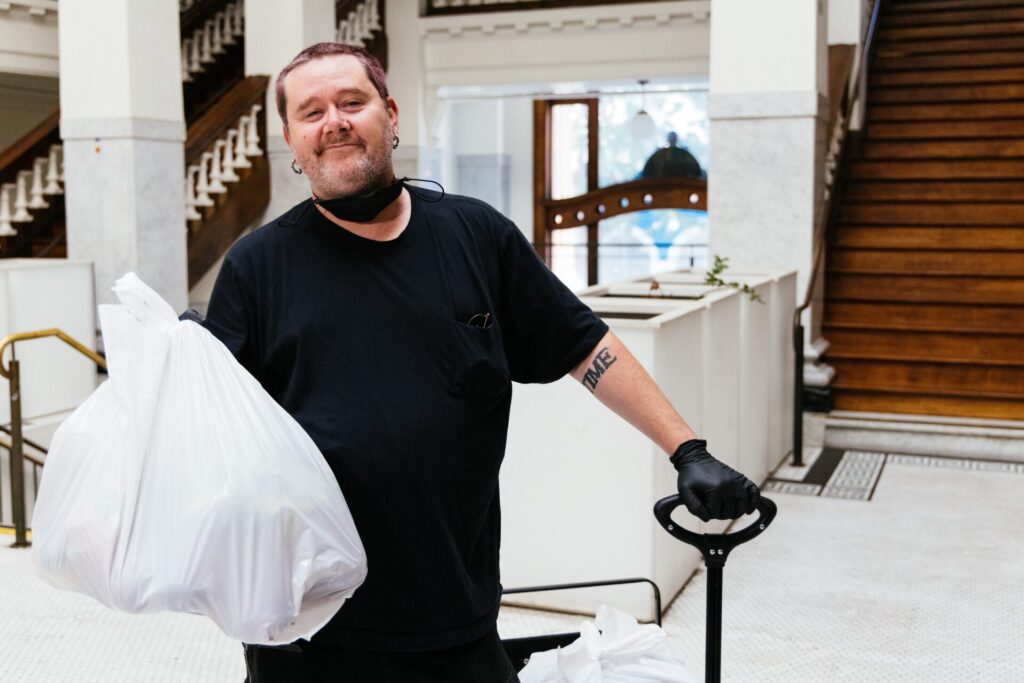
Coming from an Italian family where a full belly was the highest compliment, Food Bank volunteer Sam grew up knowing that food was “a big deal.”
“Without food, I feel like life would be boring,” he shared. “Food is a way for people to show how much they care about people, without knowing how to say it or show it otherwise. I feel like you can solve a lot of problems with food.”
In July of 2021, food helped Sam solve a problem of his own: how to occupy his time as a newly sober person. Meditating on the value of food in his own life, and as a safety net and springboard for others, he decided to volunteer with the Food Bank.
“Trying to Make a Life”
After a short stint packing grocery bags at the San Francisco warehouse, Sam began delivering fresh food to the doorsteps of homebound neighbors. But soon, he was wondering how he could make an even greater impact. Eager to build a consistent routine and establish a connection with folks on his route, Sam “adopted a building” to deliver food to the same families in the Tenderloin each week.
Reflecting on his experiences over the past three years, Sam was quick to counter common misperceptions about food insecurity in the Tenderloin: “I deliver food to not just folks who are in from the cold, but a lot of people who are trying to make a life and get back on their feet,” he shared. “There are families in these neighborhoods that need this service. They’ve got children they have to feed.”
Underscoring Sam’s point, only 3% of Food Bank participants are unhoused and 60% have at least one member of the family working. It’s clear that homelessness and unemployment are not the drivers of food insecurity in our community. That’s why we’re working with partners, advocates and volunteers like Sam to address hunger at its root: income inequality, the sky-high cost of living, systemic inequities and an insufficient social safety net.
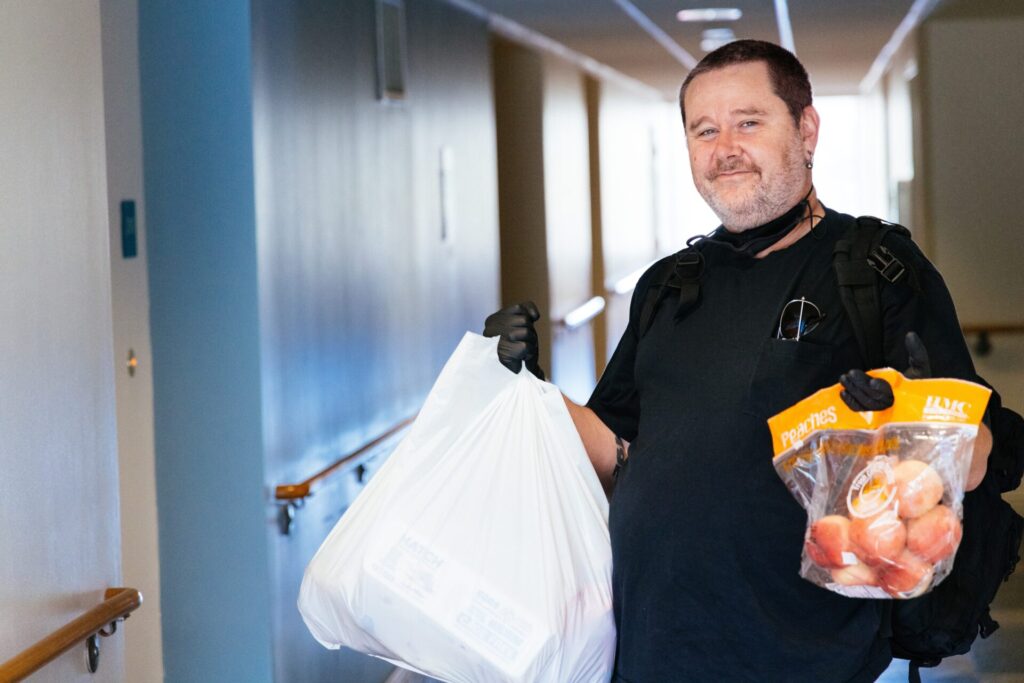 Haircuts and Healthy Groceries
Haircuts and Healthy Groceries
Born and raised in Potrero Hill, Sam is determined to keep making a difference in the city that he loves. “I believe that whatever small thing I can do is still a note better than nothing,” he told us.
But Sam’s dedication is no “small thing” by any measure. To date, he’s shared more than 130,000 pounds of food with neighbors and volunteered more than 700 hours of his time. He delivers to 75 households weekly. And he’s even picked up some unlikely tools – scissors and a razor – to better meet the needs of his neighbors.
“I started the barber thing in January of this year. I let everybody [on my route] know upfront: ‘I’m a student barber, but I’m totally willing to give you a free haircut.’ There was one gentleman who really sticks out to me, his name was Paul. I got him cut up looking good. His afro was looking tight, got him a good shave going. He was rocking his handlebar mustache after I was finished. He was giddy almost with excitement,” Sam laughed.
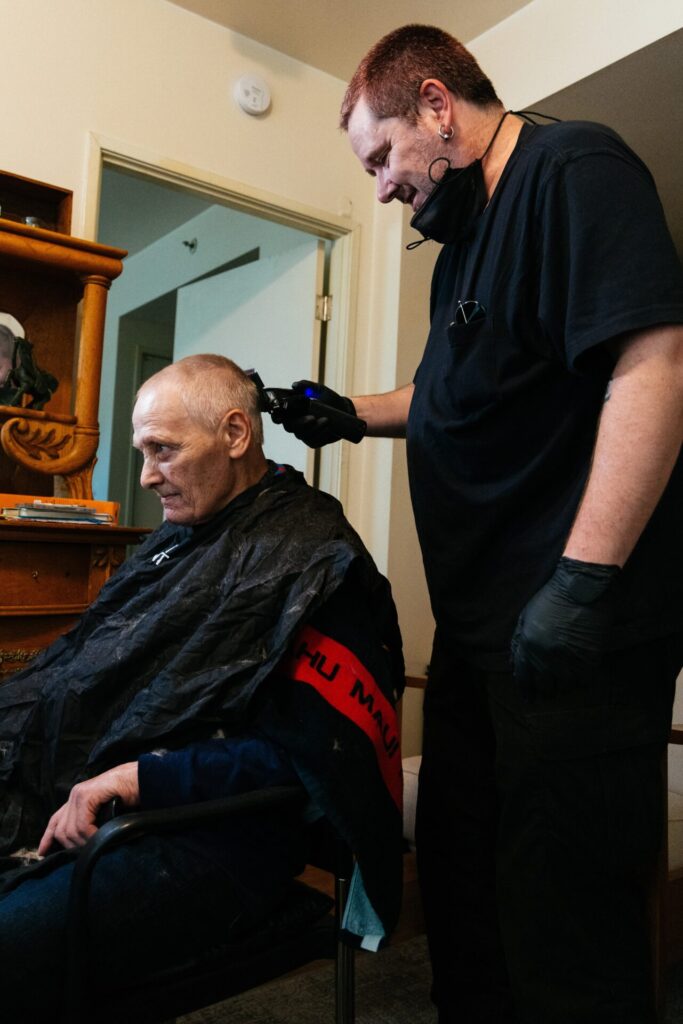 “Kindness is Strength”
“Kindness is Strength”
From trims to line-ups, Sam is building his barbering repertoire while building connections with his neighbors – including a participant on his route who is a barber herself! His driving ethos is the same through it all: “What can I do to lift this person up, to empower them to take the reins and then go forward?”
Whether through food, friendly conversation or a solid shave, Sam’s compassion shows up in every interaction. And when asked to make an elevator pitch for becoming a driver for Home-Delivered Groceries, his call to action is simple.
“In the world now, being kind to one another is the strongest thing that you can do for your fellow human being. Kindness is strength. And there are a lot of people who are stronger than they think they are.”


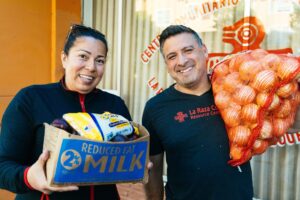
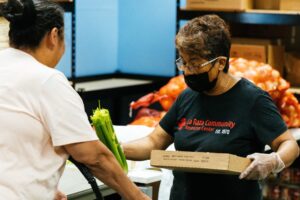
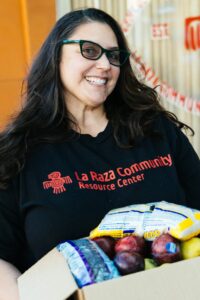
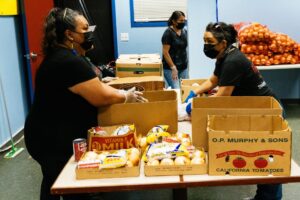
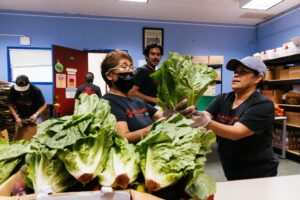
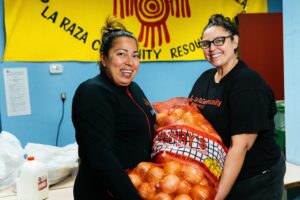
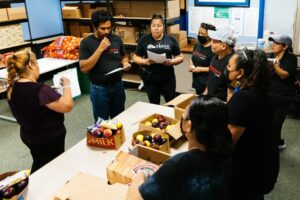


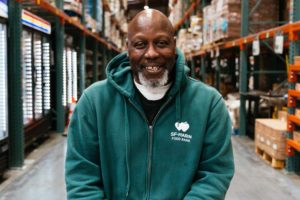 Step onto the shop floor at the Pennsylvania Warehouse and you’ll be greeted by racks filled with just about every item under the sun: fresh fruits and vegetables (of course), canned beans and proteins, fresh breads and pastries, eggs, frozen proteins like chicken breasts, and assorted dry, fresh, and frozen grocery items from supermarkets all over San Francisco.
Step onto the shop floor at the Pennsylvania Warehouse and you’ll be greeted by racks filled with just about every item under the sun: fresh fruits and vegetables (of course), canned beans and proteins, fresh breads and pastries, eggs, frozen proteins like chicken breasts, and assorted dry, fresh, and frozen grocery items from supermarkets all over San Francisco. 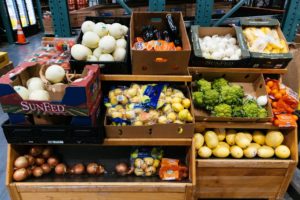 Henry says that lately, “demand is very high, with a limited supply,” because of inflation and supply chain issues, driving home the need for continued support from our community as we strive to keep our shop floor racks full for our neighbors and partners.
Henry says that lately, “demand is very high, with a limited supply,” because of inflation and supply chain issues, driving home the need for continued support from our community as we strive to keep our shop floor racks full for our neighbors and partners. 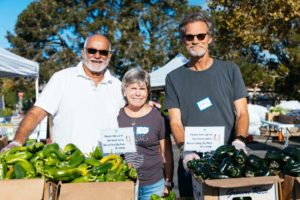 COVID Pantry Pivots
COVID Pantry Pivots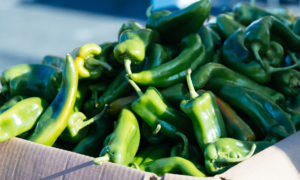
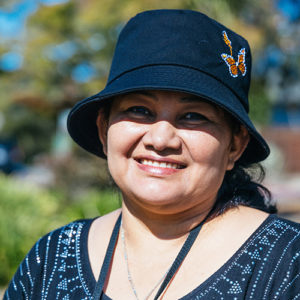
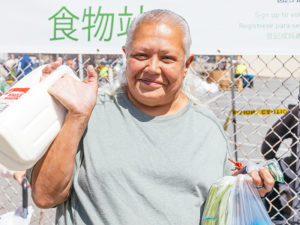 the past 40 years, and understandably, she’s seen the city change a lot in her time here. “When I came here [in the 80s], you could buy a thousand wonders for $50. You could fill the refrigerator for at least a month [for $50]. Now, everything is so expensive. There are times when there’s not enough to buy food. It’s terrible.”
the past 40 years, and understandably, she’s seen the city change a lot in her time here. “When I came here [in the 80s], you could buy a thousand wonders for $50. You could fill the refrigerator for at least a month [for $50]. Now, everything is so expensive. There are times when there’s not enough to buy food. It’s terrible.” 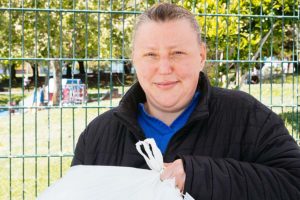 now, Anna is working anywhere from six to seven days a week as a nurse at Highland Hospital, and teaching UCSF nursing students as well. She stops by Cesar Chavez Pop-up Pantry to pick up food for her parents on her one day off.
now, Anna is working anywhere from six to seven days a week as a nurse at Highland Hospital, and teaching UCSF nursing students as well. She stops by Cesar Chavez Pop-up Pantry to pick up food for her parents on her one day off. 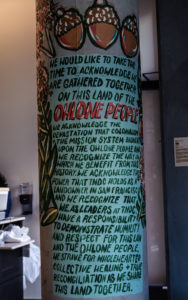
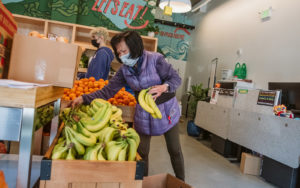
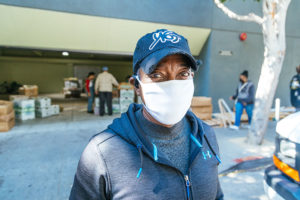 L
L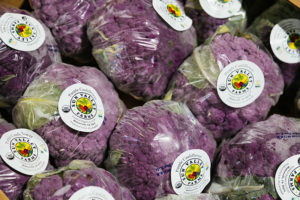 delivering more than nutrition to their parish. SFAAFBC’s holistic approach allows them to target the root causes of food insecurity by caring for the whole person.
delivering more than nutrition to their parish. SFAAFBC’s holistic approach allows them to target the root causes of food insecurity by caring for the whole person.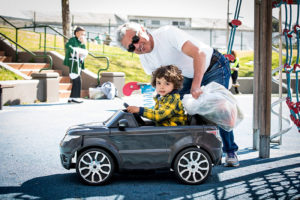 Other parents are more hesitant to let go of remote or homeschooling. Farzad is the single dad of 3-year-old Mehdi, as well as a musician, small business-owner, and participant at Cesar Chavez Pop-up Pantry. Farzad watches his son drive a toy car around the playground and sighs, shaking his head when asked about in-person preschool. He doesn’t “want Mehdi to go until COVID is over,” citing health concerns like maskless and unvaccinated children.
Other parents are more hesitant to let go of remote or homeschooling. Farzad is the single dad of 3-year-old Mehdi, as well as a musician, small business-owner, and participant at Cesar Chavez Pop-up Pantry. Farzad watches his son drive a toy car around the playground and sighs, shaking his head when asked about in-person preschool. He doesn’t “want Mehdi to go until COVID is over,” citing health concerns like maskless and unvaccinated children.
Share